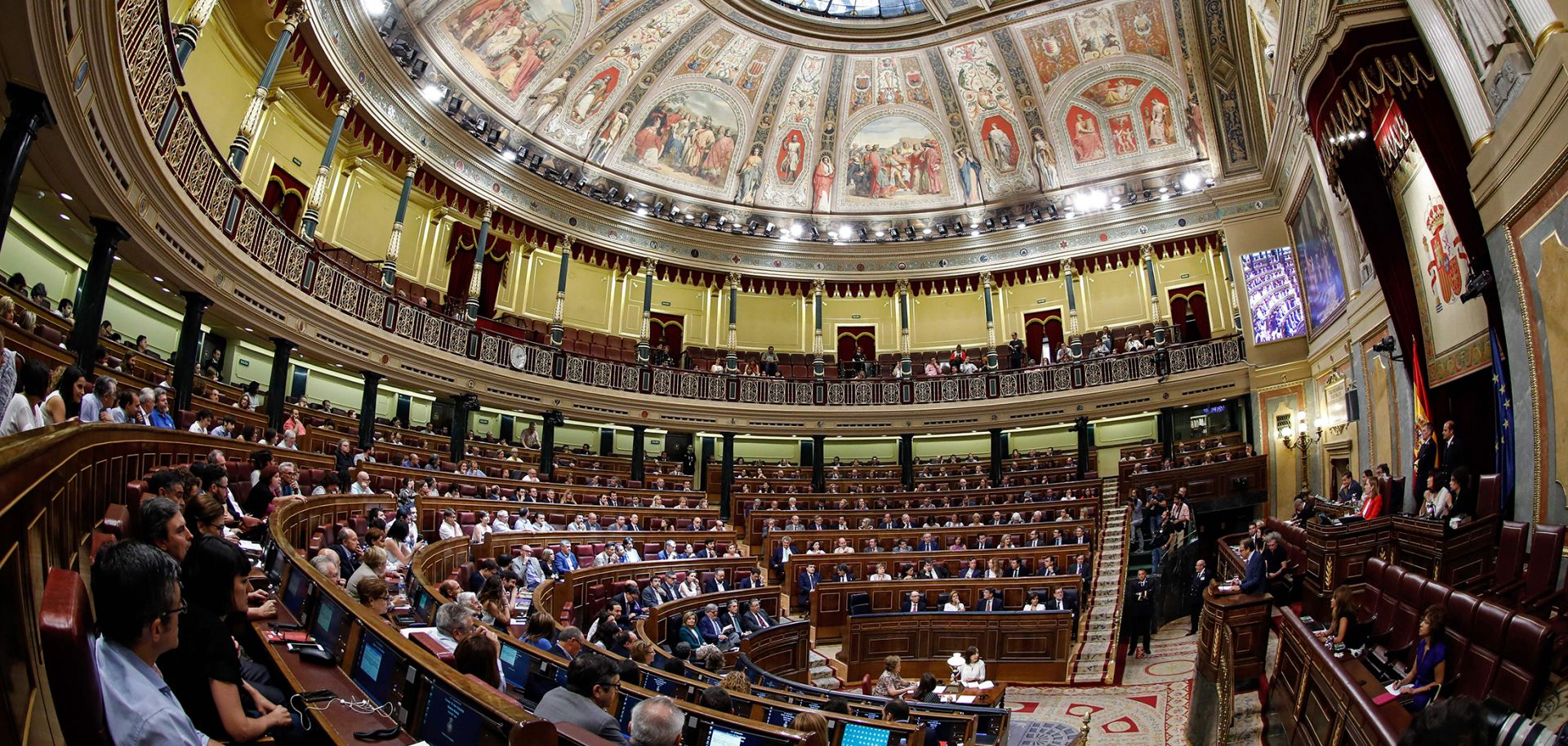ASSESSMENTS
In Spain, Elections Won't Shield Madrid from Economic and Political Headwinds
Mar 27, 2019 | 09:00 GMT

Deputies meet on June 14, 2017, in Madrid's Congress of Deputies. The country's government lost a vote of no-confidence.
(OSCAR DEL POZO/AFP/Getty Images)
Highlights
- The Spanish general election on April 28 could lead to a divided parliament and long coalition talks, highlighting the uncertainty about the country's policy direction and questions over whether its former economic resilience will persist.
- The next administration in Madrid will also have to deal with unresolved disputes with Catalonia and an uneven economic recovery.
- The lengthy negotiations to form a government and domestic issues could reduce Spain's influence in EU affairs in a year when the leaders of some of the most important Continental institutions will be appointed.
Subscribe Now
SubscribeAlready have an account?
